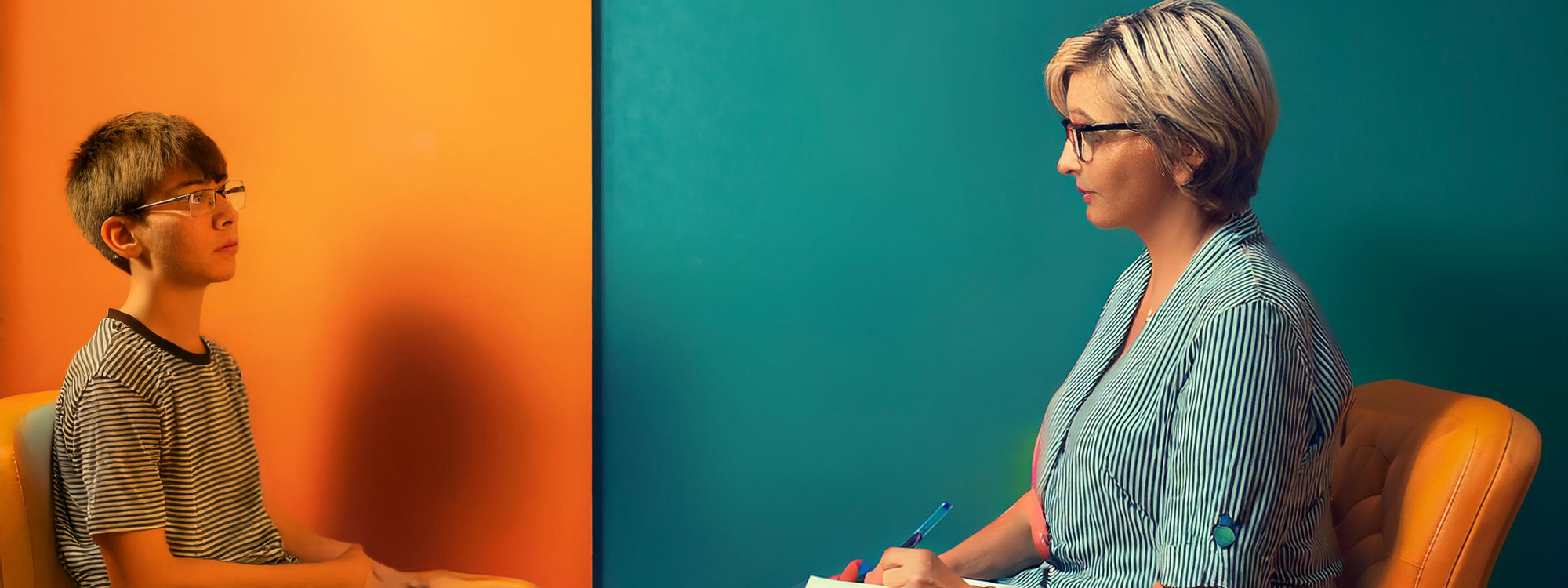| |
Certain things in life can be stated as absolutes. It is easy to find examples in the realm of mathematics or logic: All rectangles are polygons. All humans are mammals. Ethan Edwards is the co-founder of Virtuous Pedophiles. Blog posts reflect his personal views, and are not statements from the organization. Certain things in life can be stated as absolutes. It is easy to find examples in the realm of mathematics or logic: All rectangles are polygons. All humans are mammals.Others are near absolutes: Killing children is always wrong. No sexual activity should happen unless all participants are willing. You can construct possible scenarios for exceptions involving evil people and the avoidance of worse consequences, but they are convoluted.
Consider now, "Adults should never engage in sexual activity with children". That is my ultimate conclusion, but only after considerable thought and argument. Some may take it as an absolute: It's wrong because it's wrong. Others may take it as a direct consequence of other absolutes, which I consider one-by-one below.
"Children cannot consent to sex."
Everyone understands that children can express their desire to do or not do anything. The actual intended meaning is that children cannot give informed consent — that they cannot possibly have adequate information to be trusted with that decision. This doesn't hang together as an absolute. Sex-positive people think children can consent to solo masturbation. They can consent to games of "I'll show you mine if you show me yours" with children their age. Thirteen-year-olds can have intercourse with each other — it is very common. Some might regret it later, but large numbers will continue to maintain throughout their lives that they knew what they were doing, they consented to it, and there was no moral lapse by them or their partners.
So what happens when the child's partner is an adult rather than another child? It's far from obvious why sexual activity with an adult should have any different consequences. The same sex organs are involved and used in the same way. Affection, emotions, promises, lies — they can all be present or absent in both cases. People often speak of a power imbalance, the adult using persuasion or force, or promising good things as a reward, or of being more likely to press for intercourse and less likely to use a condom. These are all bad things, but they are not a necessary consequence of age, just correlates. The age difference is a risk factor for these bad things, but just a risk factor.
We can further tell that absolutes do not apply by considering the ages of the partners, which vary continuously. Consider a 25-year-old man having sex with a girl of 18, or 17, or 16, or 15, or 14, or 13, or 12. The law may draw a sharp boundary somewhere, but how could anyone draw a sharp boundary in moral terms? We have similar problems if we fix the child's age at 13 and then consider a partner who is 13, 14, 15, etc. up to 25.
Another approach is to say that anyone having sex with a 13-year-old is morally in the wrong regardless of their age — it's just that if the partner is also 13, then there's no one to punish. Wrong has been done, even if there is no one to be held responsible. Some jurisdictions apparently feel that both should be held responsible.
Then we come to harm. Most 13-year-olds who willingly had sex with another 13-year-old will not think their lives were ruined. Yet as the partner's age goes up, we run into another proposed absolute:
"Children always find sex with an adult traumatic at the time."
Susan Clancy's book, "The Trauma Myth" addressed this point. She asked for volunteers who wanted to talk about sexual abuse that bothered them. And while many were deeply troubled, very few reported being traumatized at the time of the abuse. At the time they typically experienced it as just strange. They often had some sense that it wasn't right, but it was nowhere near "trauma". It's only later that it bothered them and they came to be troubled it — deeply troubled. The pro-contact slant on this is that only when society brainwashed them into thinking they were harmed were they harmed. An anti-contact view is that they were discovering that they had been betrayed and used. But at the time they are typically not struggling, not saying "no" in a clear way, and not particularly troubled.
"Children's lives are always devastated by sexual abuse".
Enter the Rind meta-analyses. The initial one has the distinction of being the only scientific study condemned by the US Congress. (unanimously no less). But serious scientists with no particular ax to grind will tell you that it is actually good science. The key findings were that child sexual abuse was often not harmful, and rarely extremely harmful. In a typical study, investigators surveyed college students about child sexual abuse, then asked them if they felt they were harmed. Large numbers said no.
The good news from a moderate perspective is that sex abuse survivors can take a more positive attitude. Maybe it will be just a memory. Maybe a few sessions of therapy will be enough to process this enough so that it won't interfere with leading a happy life. It is interesting that these studies include cases that were reported as not consensual — cases that everyone (including pro-contact pedophiles) recognize as being morally wrong.
But moderates could understandably be alarmed that pedophiles would read this as implying that secret sexual activity with kids was really OK. Indeed, pedophiles publicly jumped on this study as evidence that adult-child sex should be legalized. If something is not harmful, liberty would suggest that it ought to be legal. A low rate of harm would lend credence to the idea that children can be trusted to consent to sex after all.
On the other hand, the world has many thousands of adults who say publicly that they were abused and they have been terribly traumatized. Many understand that they did not struggle or clearly say "no". There are presumably a great many more who share these views privately. One way to reconcile this with the Rind studies is that a low percentage of people are seriously harmed, but they are deeply harmed. Society routinely and appropriately forbids a wide range of activities that are rarely harmful — failure to use seat belts is just one example.
"No prepubescent child would ever agree to sex and mean it."
If you look hard enough, you can find published accounts of adults looking back on their childhood (or young teen) sex with an adult as something that was OK. Mr. T. Rivas found 118 cases. I looked at them and found them to be predominantly cases where an adult provided support and love for a child who was not getting this at home, and the sex was OK as part of the bargain. A few rated it as an inherently positive experience, though rarely with much enthusiasm. Based on those cases, we can say that adult-child sex is not inherently harmful in the sense that all squares are inherently rectangles.
None of the absolutes hold up. Children and consent, children and trauma, children and harm — it is all sort of slippery. It is a matter of probabilities.
Many reasonable people believe these absolutes. My best understanding of why they do is that they view the issue of child sex abuse as a war. The objective is to prevent abuse stop. Any argument will be marshaled if it helps win the war. Anything suggesting sexual abuse is less than uniformly damaging and immoral could be distorted by pedophiles into justifying sex with children.
My goal is not war but truth, following it wherever it leads me. But even if you do view it as a war, these absolute assertions are counterproductive. Pro-contact pedophiles point out the obvious flaws and conclude that all anti-contact arguments are flawed.
My conclusion that adult-child sex is wrong is not based on absolutes, it is based on risks and rewards, on incentives to misperceive, on the need for legal proof in unclear circumstances. It is pragmatic.
One analogy I think is relevant is the legal prohibition on conflict of interest. For instance, a judge is barred from hearing a civil case where his son is one of the parties. Is it impossible that the judge would render a fair verdict? Not at all. Surely many judges would weigh the evidence fairly and be willing to rule against their son. Yet it is absolutely prohibited. Judges do not complain about how unjust this rule is, how their integrity is impugned, how they are insulted. They understand that it is a reasonable rule that guards against weakness in human nature.
A pedophile can similarly conclude that he could conceivably engage in sexual activity with a particular rare child and it could turn out OK — fulfillment of his desires is not inherently harmful. But he could recognize that other pedophiles may not be as scrupulous or adequately perceptive, that the combination of children and circumstances leading to a favorable outcome is very rare, and that it is good social policy to prohibit all such relationships.
About the author: Ethan Edwards is a pseudonym. I am a pedophile, always celibate, and I have never seen child pornography. My attraction is strongest to girls around 4 years old, but I am also attracted to girls and women up through their 30s or beyond. Now in my late 60s, I'm divorced and living alone. I was married for over 10 years and was heavily involved with raising my 3 daughters. For most of my career I was a successful software engineer. I am very unusual for a pedophile in that I didn't realize that I was one until I was in my 50s—but it was there all along. I am angry that we all must remain silent or risk losing everything. That was my mindset when I co-founded Virtuous Pedophiles in 2012. I soon learned of the the terror of the typical pedophile who realizes as a teenager that his attraction isn't going to go away, who has nowhere to turn for help. The injustice I am most passionate about is the harsh legal penalties imposed on pedophiles who passively view illegal images of children. I stepped down from my role as a director of Virtuous Pedophiles early in 2024 and am delighted to pass the mantle on to a younger generation. This content was taken from Ethan's longstanding blog, Celibate Pedophiles. Some of the titles and taglines have been edited for their inclusion at thepword.
You can see an earlier version of the blog at the wayback machine. | |






 attraction is not action
attraction is not action crackle and burn
crackle and burn what do pedophiles do?
what do pedophiles do?